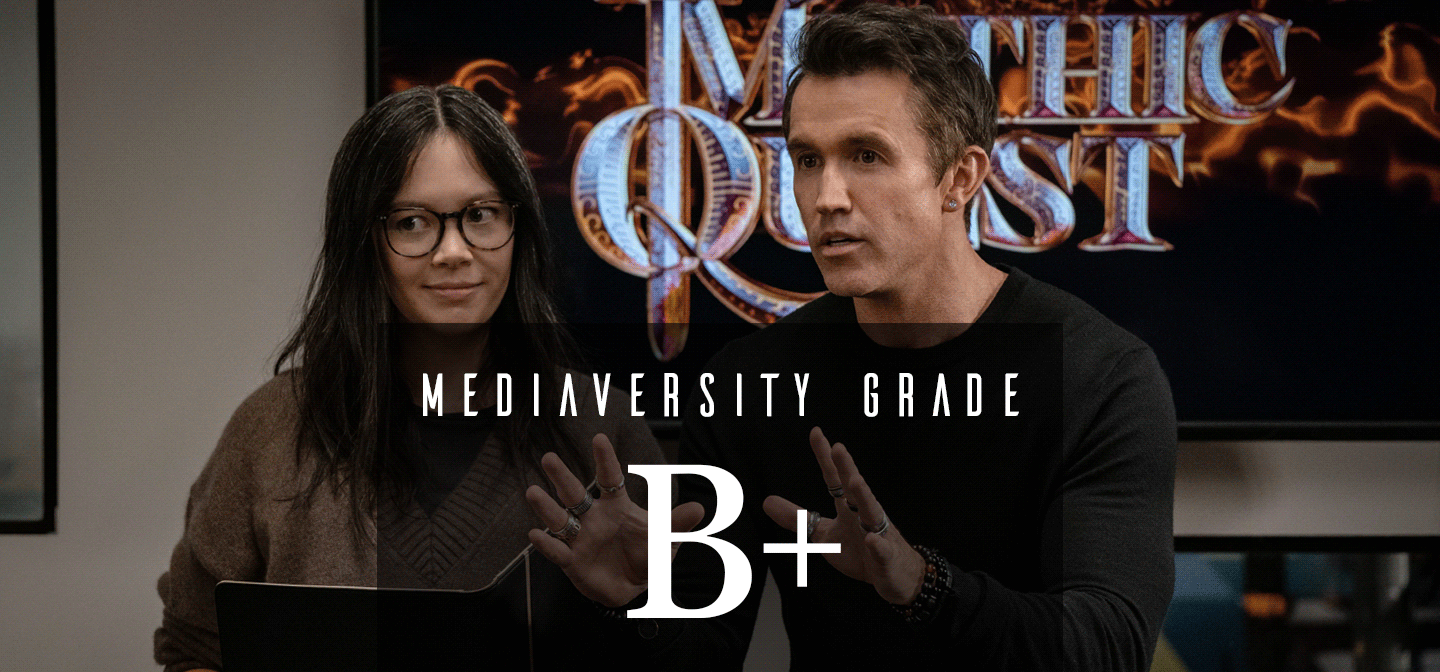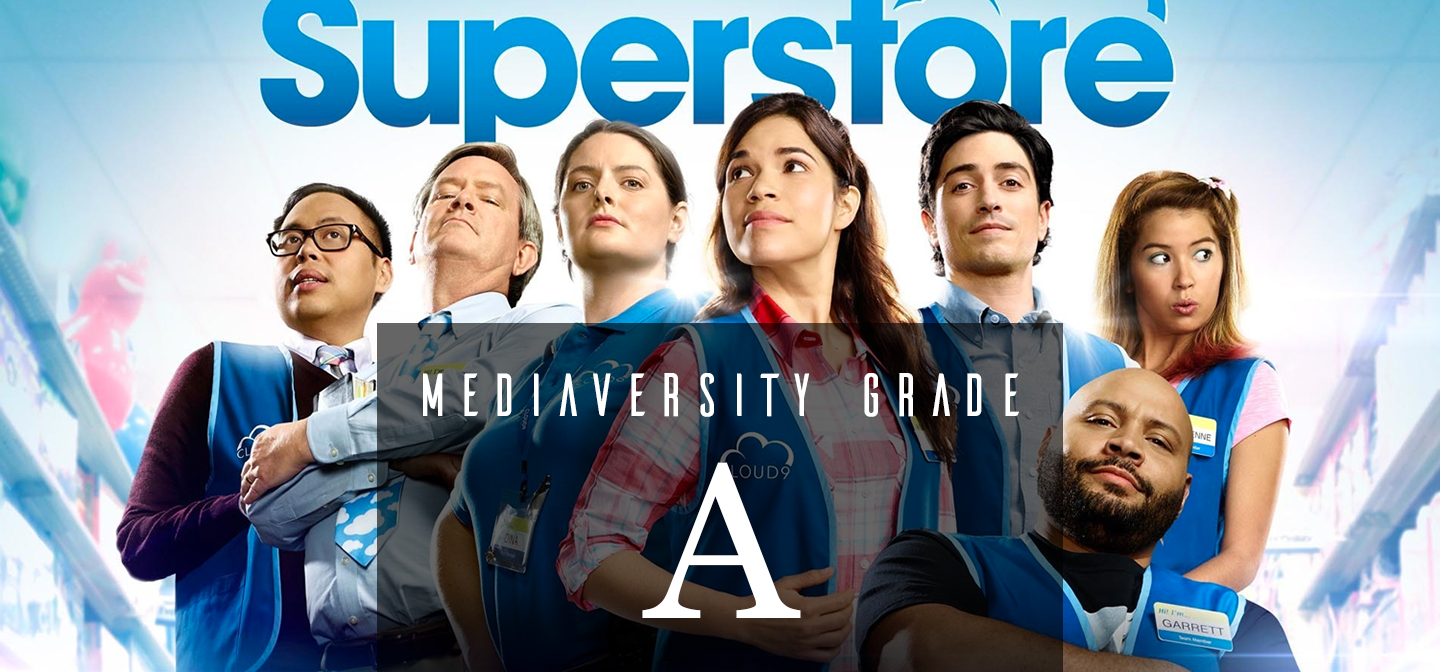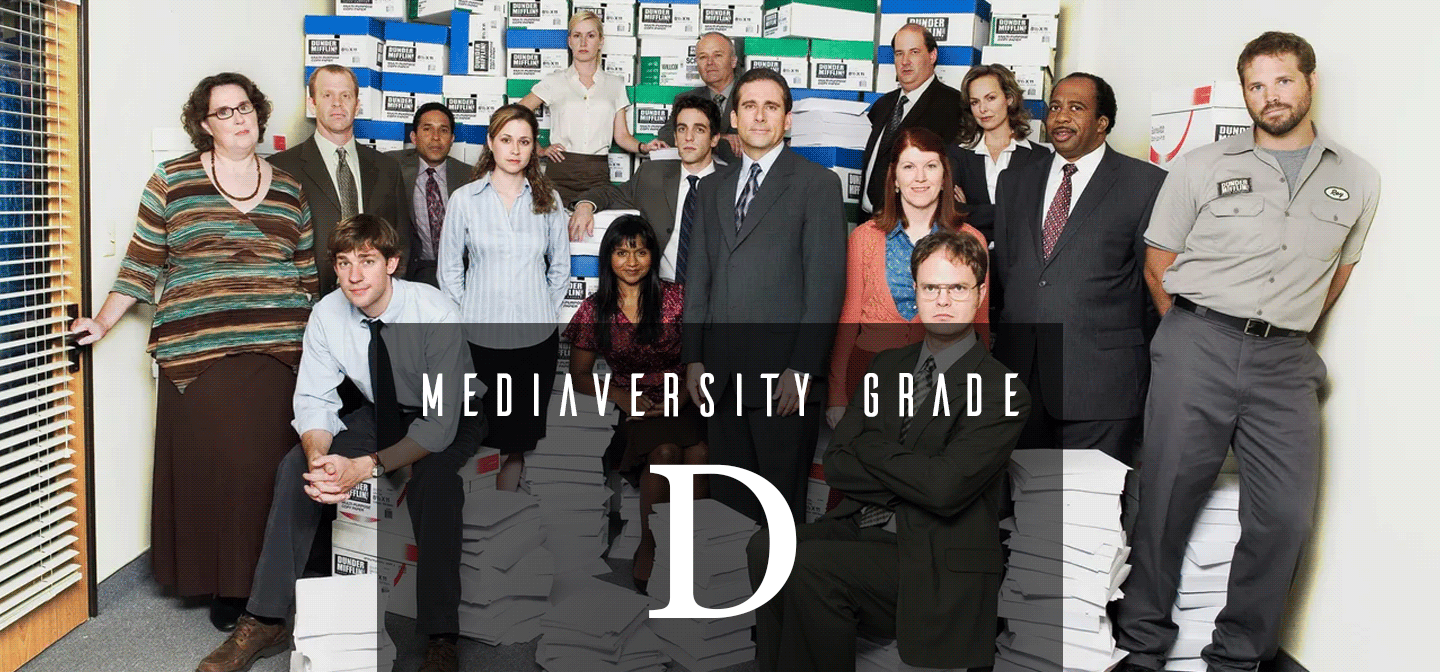Mythic Quest
“Mythic Quest doesn’t lazily rely on ‘satire’ to reflect real-world issues.”
Title: Mythic Quest
Episodes Reviewed: All (Seasons 1-4)
Creators: Charlie Day 👨🏼🇺🇸, Megan Ganz 👩🏼🇺🇸, and Rob Mac 👨🏼🇺🇸
Writers: Charlie Day 👨🏼🇺🇸 (40 eps), Megan Ganz 👩🏼🇺🇸 (40 eps), Rob Mac 👨🏼🇺🇸 (40 eps), Ashly Burch 👩🏻🇺🇸🌈 (10 eps), Katie McElhenney 👩🏼🇺🇸 (10 eps), Humphrey Ker 👨🏼🇬🇧 (10 eps), David Hornsby 👨🏼🇺🇸 (10 eps), Keyonna Taylor 👩🏾🇺🇸 (10 eps), and various
Reviewed by Li 👩🏻🇺🇸
Note: This review was commissioned by one of our Patreon supporters. The content and methodology remain 100% independent and in line with Mediaversity's non-commissioned reviews. If you’d like to request your own TV or movie review, sign up for our Hero or Champion tiers of membership.
—SPOILERS AHEAD—
Technical: 4.5/5
Snappy and snarky yet full of heart, Mythic Quest is one of the rare streaming shows that feels truly original. Unlike other Apple TV+ offerings, it’s not Ted Lasso (2020–), a feel-good comedy where footie could be swapped for any number of sports and still keep its fish-out-of-water setup. Even Severance (2022–), while lauded, essentially puts a corporate thriller into a mystery box format—a formula that Homecoming (2018–20) served up four years earlier.
In contrast, there’s nothing else on TV that skewers the $200 billion gaming industry with such specificity and charm as Mythic Quest. Creators Charlie Day, Megan Ganz, and Rob Mac—alums of It's Always Sunny in Philadelphia—repeat their knack for making horrible people lovable. In the show, Mythic Quest Studio’s creative director Ian Grimm (played by co-creator Rob Mac) may be narcissistic, and lead engineer Poppy Li (Charlotte Nicdao) laughably juvenile. Still, it’s impossible not to root for their growth. It’s a joy to watch the duo’s sizzling work chemistry, as two riff on each other’s ideas and make brilliant, video game magic together.
Rounded out by other ridiculous employees at Mythic Quest (and later GrimPop), the series does a fantastic job of building a true ensemble. Supporting characters get backstories and develop relationships with one another. Not every episode is a slam dunk, and some experimental ones wind up being snoozefests. (I love a big swing, but Season 4’s “The Villain's Feast” did nothing for me.) Still, it’s hard not to love this kooky cast of gaming nerds and artistic powerhouses who you just can’t find anywhere else on TV.
Gender: 5/5
Does it pass the Bechdel Test? YES
The gaming industry has an appalling track record with women, as evidenced by Gamergate and the scandal at Activision Blizzard. But that doesn’t mean incredible female game designers and producers don’t exist. Uncharted, Assassin’s Creed? You can thank women for those.
That’s why it’s refreshing that Mythic Quest’s main cast is gender balanced. It recognizes the offbeat, creative, and intelligent women who work on some of our favorite games. From lead engineer Poppy to spunky QA testers Rachel (Ashly Burch) and Dana (Imani Hakim), to the sociopathic executive assistant Jo (Jessie Ennis), all of these women have key roles and grow in both their careers and personal lives over the course of the series.
And while the show does take a rosy view of gender dynamics at Mythic Quest, where female characters receive respect and power without too much fuss, it doesn’t pretend that sexism doesn’t exist. Sometimes it shows up as comedy fodder: In “The Convention” (Season 1, Episode 4), Girls Who Code tour the Mythic Quest office where executive producer David Brittlesbee (David Hornsby) can only scrounge up a few women for them to talk to in a sea of male coders. Other storylines probe deeper: When Poppy feels undervalued at Mythic Quest, she explores other work options before finally getting promoted to equal partnership with Ian.
Ultimately, it’s most exciting that Mythic Quest doesn’t lazily rely on “satire” to reflect real-world issues. Comedies like Silicon Valley (2014–19) and The Office (2005–13) “critique” frat culture by going all in on, well, frat culture. But no one’s getting more than a few cheap laughs out of the repeated punchline, “Ha ha, isn’t this terrible?”
In contrast, Mythic Quest uses a more modern approach, depicting depressing real-world situations with both pragmatism and optimism. Combined with strong writing that takes the time to develop female characters, viewers are given something longer-lasting to chew on (and chuckle at).
Race: 4.25/5
Mythic Quest takes a slightly more hands-off approach to race. On the plus side, the cast is wonderfully diverse and authentically cast, with characters’ ethnicities usually matching those of their actors. Co-lead Poppy is biracial Filipino Australian; Machiavellian money man Brad Bakshi is Polish-Indian American like his actor, Danny Pudi; and Dana and HR manager Carol (Naomi Ekperigin) are Black women.
Racial identity comes up in spare moments, such as Poppy’s childhood flashbacks in “Sarian” (Season 3, Episode 7), which introduces us to her Filipino dad, Benito (Dionysio Basco). Brad has a few episodes where he speaks in Polish with an ex-lover, Anna Nowak (played by Polish actor Karolina Szymczak). But that’s about as far as racial representation goes. Conversations about anti-Blackness in gaming never come up as Dana strives to become a game developer, and Carol could be swapped for someone of any racial background and remain mostly unchanged. On the whole, it’s positive that the series casts people of color into leading roles and acknowledges their respective ethnicities. But it doesn’t take the time to explore how race intersects with work in the gaming industry.
LGBTQ: 4/5
Most of the main characters are straight, but one central and much-loved pairing includes two women: Dana and Rachel. The two enjoy a sweet, will-they-won’t-they romance that blossoms over the course of the show’s four seasons, as they experience highs and lows in the relationship. Their love culminates in some of Mythic Quest’s most feel-good moments.
Deduction for Age: -0.25
Though he only appears in the first two seasons, F. Murray Abraham (who’s 85 at the time of this review) has an important role as Mythic Quest’s key writer, C. W. Longbottom. He receives a backstory that deeply humanizes him, but the show gets a lot of mileage out of his age, leaning into stereotypes of adults over 60 being out of touch and inappropriate. While C. W.’s sheer inability to use Zoom does deliver plenty of amusement—we all know that person who can’t make a video call without hiccups—his sense of entitlement and overt sexism quickly become tiresome. It’s for the best that showrunners retire the character at the start of Season 3.
Mediaversity Grade: B+ 4.38/5
Five years after Mythic Quest delivered “Quarantine” (Season 1, Episode 10), one of the most touching episodes of TV produced during the early days of COVID, I’m sad to see these characters go. These goofy miscreants received such affection and respect from their writers, and I’m thankful that an industry near and dear to my heart was portrayed so teasingly well. But it’s better to end on a high note, and I look forward to seeing where Day, Ganz, and Mac take their talents next.




